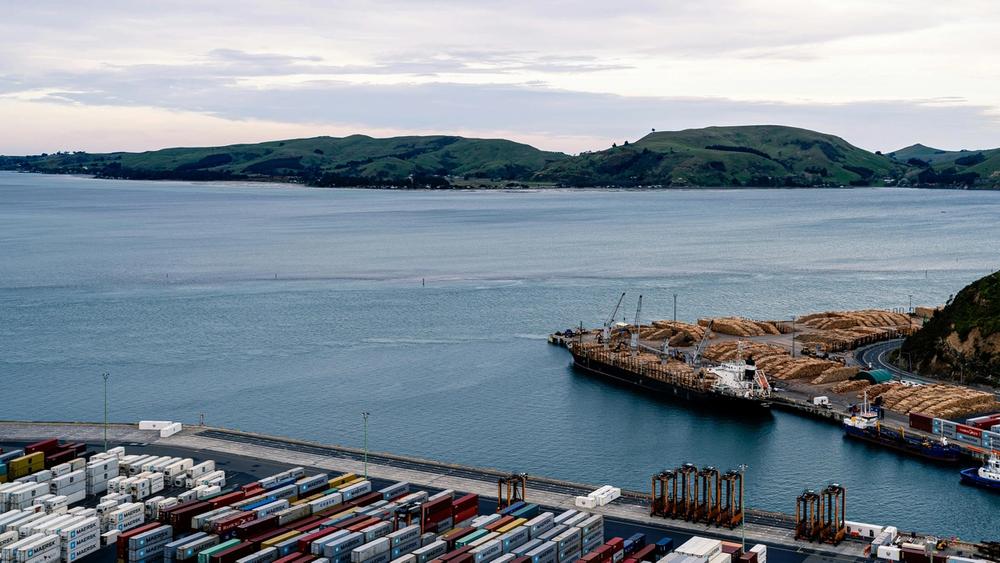Luis Porto
Event
Decarbonising transport & logistics | A roadmap to scope 3 and supplier emissions data
Webinar
When
07 March 2024
10:00am - 11:00am
Where
Online

About
the event
Our experts will discuss how New Zealand’s second highest emissions source, the transport and logistics industry, can take effective climate action. Our skilled panel share their insights on the key pressures this industry is facing. Tune in to learn how it can respond to the growing emissions measurement and reporting requirements, being particularly driven from across the supply chain.
During this webinar, our experts discuss:
- The role transport and logistics can play in the decarbonisation across all industries and organisations
- The impact of full supply chain reporting requirements on the transport and logistics industry including the influence this will have on target setting.
- Why there is a growing need to measure your supply chain carbon emissions.
- What information customers and stakeholders are looking for about the impact of transport and moving goods.
- The value of getting better data visibility for more accurate measurement.
Panel members

From
this event
Download the presentation
Additional Q&A
Q1: Electric vehicles (EV) have a greater impact on the roading infrastructure. Is this taken into account in your decarbonising calculation's (LCA) in terms of extra roading maintenance (more GHG) required?
Our Life Cycle Assessment (LCA) calculations are designed to comprehensively address the environmental impacts associated with various aspects of vehicle usage, including road maintenance. When evaluating the impact of EVs on roading infrastructure, we consider the additional maintenance requirements resulting from their heavier weight. This assessment is integrated into our calculations of embodied maintenance-related emissions over the entire life cycle of the vehicle.
Moreover, our approach extends beyond just accounting for the increased maintenance needs. We also analyse the overall emission profile by comparing the total gross emissions from the EV scenario to that of traditional diesel/petrol vehicles. This includes not only the emissions related to road maintenance but also those associated with the fuel source. By examining the complete life cycle and accounting for factors such as weight-related road wear and fuel emissions, our LCA provides a comprehensive view of the environmental impact of EVs compared to conventional vehicles.
Q2: For labour intensive logistics organisations in manufacturing, warehousing and freight - does Scope 3 also extend to collecting employee travel to and from work?
Yes. This would be recorded under category 3 (ISO14064) or Scope 3 - Category 7 – staff commuting. A similar approach applies to business travel, Scope 3 - Category 6.
Q3: EV's appear to be a lot more common these day. Just wondering, if the production and decomposition/recycling of lithium batteries would produce less CO2 than a fossil fuel vehicle? And the lithium ion battery would eventually get decomposed, is this an environmental issue? If there is a process resolving this issue, would it in turn create further carbon emissions?
There are emissions involved in anything manufactured, whether it’s an ICE vehicle or EV. With both types there are embodied emissions involved in the manufacturing of the vehicle itself, as well as emissions involved in the production of the fuel. Overall lifetime emissions of an EV (higher embodied emissions due to the battery but far lower emissions from the use) are less than a fossil fuel based vehicle, ranging from 60% to 40%, where emissions from production and combustion of the fuel are significant and keep occurring for the lifetime of the vehicle. Particularly true in countries with a high proportion of renewable electricity.
In terms of the end of life impacts of lithium ion batteries – there are significant advances being made in battery technology to use fewer ‘rare earth’ and other materials, along with improvement in recycling. These will both help to minimise environmental impacts from batteries.
There is a study from EECA which analyses the Lifecycle Impacts of an EV vs Petrol/Diesel vehicles and can be seen here.
"The study into resource depletion impacts also helped to dispel two myths about plug-in electric vehicles (PEVs):
- Whilst PEVs do contain rare earth materials in small amounts (as do most petrol and diesel vehicles), the study findings show that the resource depletion impact of rare earth metals was not a significant issue compared to other minerals or resources;
- The lithium salts used in lithium-ion batteries for current PEVs on the market are neither a rare-earth nor even a precious metal. The study also found that the resource depletion effect of the amount of lithium in PEVs was insignificant compared to other minerals or resources.
(...)The results indicate that BEVs have the lowest impact for eco toxicity and air acidification, and that at any rate, human toxicity impacts were very small across all vehicles."
Q4: Biofuels are slated as a great drop-in option but it is difficult to procure sustainable biofuels. Is the government or other organisations looking to bring this into New Zealand?
The role of importing fuel is a private function, so the government is not involved. The fuel companies may import fuel if there is either a mandate to use the fuel (which there is not currently), or if there is sufficient consumer demand driven by the need to decarbonise. This is quite an interesting discussion on the topic: Liquid biofuels insights summary | EECA.
There is further information available here: Promoting manufacture, supply and use of quality liquid biofuels in New Zealand, Australia, SE Asia and the Pacific | Liquid Biofuels - a Bioenergy Association site.
Q5: We are wanting to continue carbon data capturing within the Toitū carbonreduce programme but again government funds are tight, are there reduction in membership fees / audit fees to accommodate in the interim?
Please get in touch with your account manager and we can get our sales team to discuss alternative options with you.

